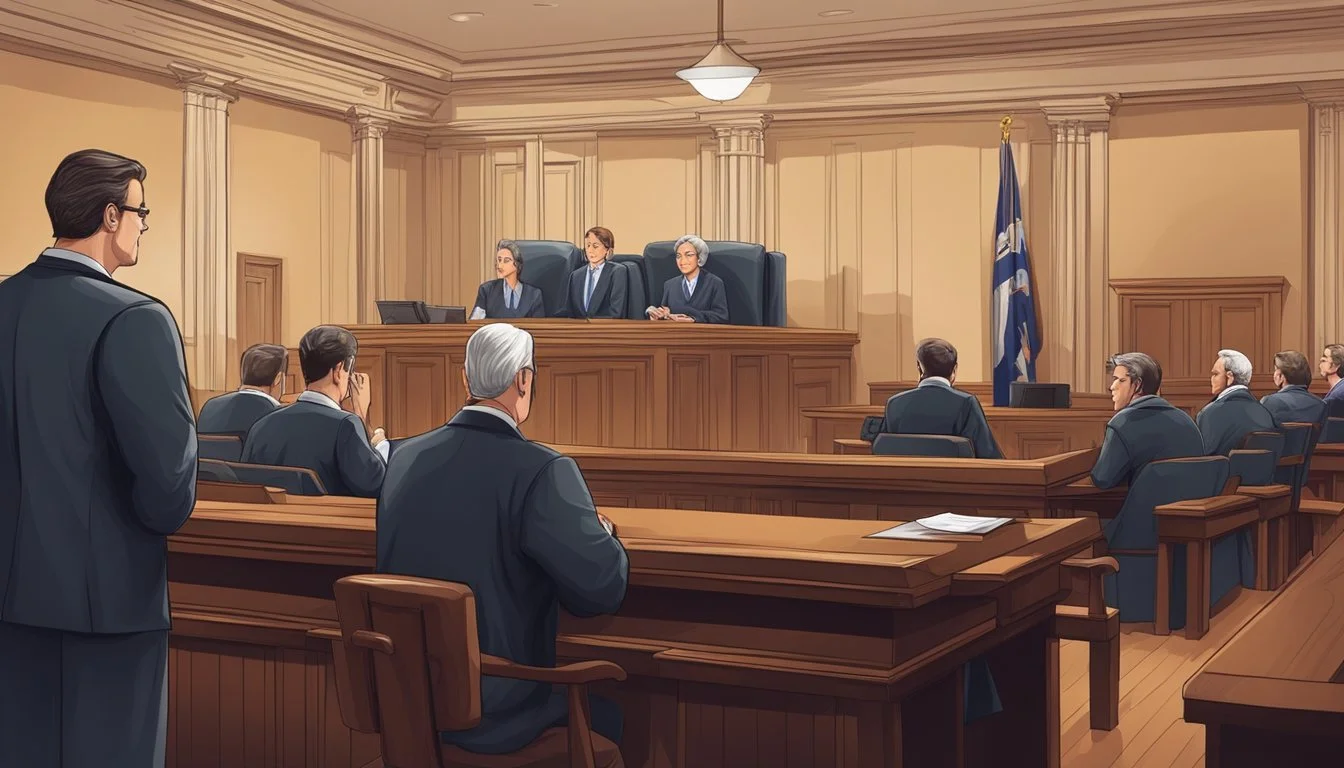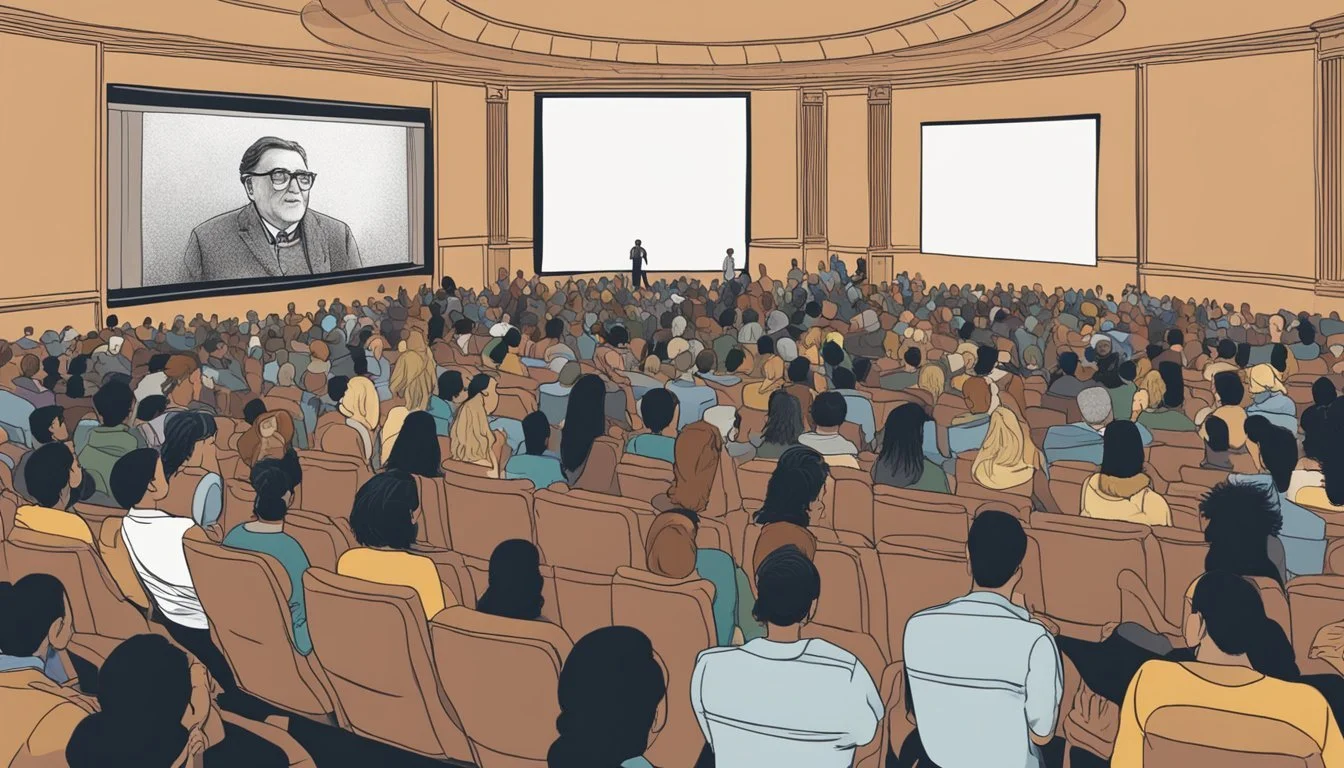Gypsy Rose: From Victim to Killer - The Shocking Truth Revealed in New Documentary
Gypsy Rose Blanchard's story has captivated audiences worldwide. Her complex tale of abuse, deception, and eventual murder has been the subject of numerous documentaries and shows. These productions aim to shed light on the intricacies of her case and the events that led to her mother's death.
Several documentaries offer viewers unprecedented access to Gypsy Rose's perspective, including interviews conducted during her time in prison. These films provide insights into her experiences with Munchausen Syndrome by Proxy, the years of manipulation she endured, and the circumstances surrounding her mother's murder.
Recent documentaries like "The Prison Confessions of Gypsy Rose Blanchard" delve into her life at Chillicothe Correctional Center. They explore her journey towards freedom and the challenges she faces as she prepares to reenter society. These productions offer a raw and authentic look at Gypsy's story, allowing viewers to form their own opinions about this controversial case.
The Life of Gypsy Rose Blanchard
Gypsy Rose Blanchard's life was marked by extreme abuse and deception. Born in 1991, she endured years of medical procedures and confinement due to her mother Dee Dee's Munchausen syndrome by proxy.
Dee Dee fabricated numerous illnesses for Gypsy, subjecting her to unnecessary treatments and medications. Gypsy was forced to use a wheelchair and feeding tube despite being able-bodied.
As Gypsy grew older, she began to realize the extent of her mother's deception. In 2015, at age 23, she conspired with her online boyfriend to murder Dee Dee.
The crime shocked the nation and brought attention to the hidden abuse Gypsy had suffered. She was sentenced to 10 years in prison for her role in the murder.
While incarcerated, Gypsy worked to process her trauma and build a new life. She married in prison and pursued her education.
In December 2023, Gypsy was released early on parole. She now faces the challenge of adapting to life outside prison and coping with the lasting effects of her traumatic childhood.
The Murder of Dee Dee Blanchard
Dee Dee Blanchard's death shocked the community and revealed a complex web of abuse and deception. The case involved her daughter Gypsy Rose and Gypsy's boyfriend Nicholas Godejohn.
The Incident
On June 14, 2015, Dee Dee Blanchard was found dead in her home near Springfield, Missouri. She had been stabbed multiple times while lying in her bed. The crime scene initially baffled investigators.
Suspicion quickly fell on Gypsy Rose, who was thought to be severely disabled but had suddenly vanished. Within days, authorities located Gypsy in Wisconsin with Nicholas Godejohn.
It emerged that Gypsy had orchestrated her mother's murder to escape years of medical abuse and confinement. Dee Dee had falsely claimed Gypsy suffered from numerous illnesses, subjecting her to unnecessary treatments and procedures.
Nicholas Godejohn's Role
Nicholas Godejohn, Gypsy's online boyfriend, carried out the physical act of murder. He traveled from Wisconsin to Missouri at Gypsy's request.
On the night of June 12, 2015, Godejohn entered the Blanchard home. Gypsy gave him gloves and a knife, then hid in the bathroom while he stabbed Dee Dee.
After the murder, the couple fled to Wisconsin. They were arrested on June 15, 2015, following a tip to police.
Godejohn was convicted of first-degree murder and sentenced to life in prison without parole. His role as the actual killer resulted in a harsher sentence than Gypsy received.
Legal Proceedings and Convictions
The legal aftermath of Dee Dee Blanchard's murder involved complex proceedings for both Gypsy Rose Blanchard and Nicholas Godejohn. Their cases unfolded separately, with different outcomes reflecting their respective roles in the crime.
Trial and Sentencing
Gypsy Rose Blanchard's case garnered significant public attention due to the unusual circumstances surrounding her mother's death. The prosecution faced a challenging dilemma, balancing Gypsy's role in the murder against her history as a victim of abuse. After careful consideration, they offered Gypsy a plea deal.
The court took into account Gypsy's experiences of medical abuse and manipulation at the hands of her mother. These factors played a crucial role in determining her sentence.
Gypsy's Confession and Plea Deal
Gypsy Rose Blanchard accepted a plea deal in July 2016. She pleaded guilty to second-degree murder in exchange for a reduced sentence. The court sentenced her to 10 years in prison, with eligibility for parole after serving 85% of her term.
During her time in prison, Gypsy participated in "The Prison Confessions of Gypsy Rose Blanchard," providing insights into her experiences and mindset. Her parole hearing, scheduled for December 2023, sparked public interest in her potential early release.
Godejohn's Trial and Verdict
Nicholas Godejohn faced a different legal path. He stood trial in November 2018 for first-degree murder. The prosecution argued that Godejohn was the primary actor in Dee Dee's death, while the defense claimed he was manipulated by Gypsy.
After a four-day trial, the jury found Godejohn guilty of first-degree murder and armed criminal action. In February 2019, he received a life sentence without the possibility of parole for the murder charge, plus an additional 25 years for armed criminal action.
Media Portrayal in Documentaries and Series
Gypsy Rose Blanchard's story has captivated audiences through various documentaries and dramatized series. These productions offer different perspectives on her complex case, exploring the psychological, legal, and emotional aspects of her experiences.
HBO's Mommy Dead and Dearest
HBO's documentary "Mommy Dead and Dearest" provides a comprehensive look into Gypsy Rose's case. Released in 2017, it delves into the intricate relationship between Gypsy and her mother, Dee Dee Blanchard.
The film features interviews with Gypsy Rose, family members, and legal experts. It explores Dee Dee's fraudulent behavior and decades-long control over Gypsy.
Director Erin Lee Carr presents a balanced portrayal, examining the events leading to Dee Dee's murder and Gypsy's involvement. The documentary received critical acclaim for its thorough investigation and sensitive handling of the subject matter.
Lifetime's Love You to Death
Lifetime's 2019 film "Love You to Death" offers a dramatized take on Gypsy Rose's story. Starring Emily Skeggs as Gypsy and Patricia Arquette as Dee Dee, the movie focuses on the mother-daughter dynamic.
The film explores themes of Munchausen syndrome by proxy and the psychological impact on Gypsy. It dramatizes key events in their lives, including medical procedures and social interactions.
While taking some creative liberties, "Love You to Death" aims to shed light on the complexities of Gypsy's situation. The movie sparked discussions about medical abuse and the long-term effects of deception.
The Act on Hulu
Hulu's 2019 true crime series "The Act" brought Gypsy Rose's story to a wider audience. Starring Joey King as Gypsy and Patricia Arquette as Dee Dee, the series dramatizes events over several years.
"The Act" explores Gypsy's journey from a seemingly disabled child to a young woman seeking independence. It portrays her online relationships and the events leading to Dee Dee's murder.
The series received critical acclaim for its performances and storytelling. It sparked renewed interest in Gypsy's case, prompting discussions about medical abuse, manipulation, and the justice system.
Gypsy Rose: Life After Lock Up
Lifetime's 2024 docuseries "Gypsy Rose: Life After Lock Up" follows Gypsy Rose as she adjusts to life outside prison. The show offers a unique perspective on her post-incarceration experiences.
It explores Gypsy's challenges in reintegrating into society, including reconnecting with family and navigating everyday life. The series features interviews with Gypsy, her family, and experts.
"Life After Lock Up" provides insight into Gypsy's personal growth and reflections on her past. It addresses her efforts to build a new life while dealing with the public's perception of her story.
Reflection and Reform
Gypsy Rose Blanchard's case sparked discussions on medical abuse, family dynamics, and the justice system. Her journey after prison involves personal healing and raising awareness about Munchausen by proxy syndrome.
Gypsy's New Life and Therapy
Gypsy Rose Blanchard faces significant challenges as she adjusts to life outside prison. She's engaged in intensive therapy to process her traumatic past and develop healthy coping mechanisms. This includes addressing the long-term effects of medical abuse and learning to make independent decisions.
Therapy also focuses on rebuilding Gypsy's sense of identity, separate from the fabricated illnesses imposed by her mother. She's working on developing life skills and social abilities that were stunted during her years of isolation and control.
Gypsy's rehabilitation process involves reconnecting with family members and forming new relationships. She's learning to navigate the complexities of adult life, from managing finances to pursuing education and career opportunities.
Munchausen by Proxy Awareness
Gypsy's case has brought renewed attention to Munchausen syndrome by proxy, a form of child abuse where a caregiver fabricates or induces illness in a child. Medical professionals are now more vigilant in identifying potential cases.
Hospitals and clinics have implemented stricter protocols to verify medical histories and cross-reference patient records. This helps prevent caregivers from doctor shopping or fabricating symptoms across multiple facilities.
Support groups and educational resources have emerged for victims and families affected by Munchausen by proxy. These initiatives aim to provide understanding, healing, and prevention strategies.
Advocacy efforts focus on improving child protection services and increasing public awareness of this often-misunderstood form of abuse.
Rod Blanchard and Family Aftermath
Rod Blanchard, Gypsy's father, has become an advocate for child protection and medical abuse awareness. He's spoken publicly about the importance of recognizing signs of Munchausen by proxy and the need for better safeguards in the healthcare system.
The Blanchard family has undergone counseling to process their experiences and rebuild relationships. Rod has worked to strengthen his bond with Gypsy, offering support during her transition to life after prison.
Extended family members have grappled with complex emotions, including guilt for not recognizing the abuse sooner. They've participated in family therapy sessions to address these issues and learn how to support Gypsy's recovery.
Rod continues to share his story to help other families recognize and prevent similar situations of medical child abuse.
Public Response and Impact
The Gypsy Rose documentary sparked widespread public interest and debate. It shed light on complex issues of abuse and medical fraud while captivating true crime audiences.
Public Opinion and Coverage
Major cable networks like HBO aired documentaries exploring the Gypsy Rose case, reaching millions of viewers. The shocking nature of the story generated significant media coverage and public discussion. Many expressed sympathy for Gypsy Rose, seeing her as a victim of extreme abuse and manipulation. Others debated the ethical implications of her involvement in her mother's murder.
Social media platforms buzzed with commentary as people shared their thoughts on the case. The documentary's unflinching portrayal of Munchausen syndrome by proxy raised awareness about this rare form of abuse.
True Crime Community Engagement
The Gypsy Rose case became a hot topic within true crime circles. Online forums and podcasts dissected every aspect of the story. True crime enthusiasts debated the legal and moral complexities of the case.
Lifetime's documentary series provided new insights, fueling further discussion. Many in the community praised the thorough examination of evidence and interviews with key figures. The involvement of figures like Ryan Scott Anderson and Ken Urker in documentaries added fresh perspectives to the narrative.
True crime fans organized viewing parties and online discussions to analyze the case together. The engagement level demonstrated the lasting impact of the Gypsy Rose story on the true crime genre.
Media Resources and Additional Information
Several documentaries, TV episodes, and published articles have explored Gypsy Rose Blanchard's story. These resources provide in-depth looks at the case from various angles, including interviews with Gypsy herself.
Documentary Episodes and Videos
The 20/20 episode "The Story of Gypsy Rose Blanchard" offers a comprehensive overview of the case. It features interviews with key figures and explores the complex dynamics between Gypsy and her mother.
HBO's documentary "Mommy Dead and Dearest" delves into the psychological aspects of Gypsy's upbringing and the events leading to her mother's murder. The film includes exclusive footage and interviews with family members.
"The Act" on Hulu, while dramatized, closely follows the real events and has brought widespread attention to Gypsy's story. Supplementary behind-the-scenes videos provide insights into the production process and cast interviews.
Published Articles and Interviews
BuzzFeed News published an in-depth article titled "Dee Dee Wanted Her Daughter To Be Sick, Gypsy Wanted Her Mom To Be Murdered" that offers a detailed timeline of events and analysis of the case.
Rolling Stone's feature "The Act: Is Gypsy Rose Blanchard Still In Prison?" provides updates on Gypsy's life post-conviction and includes quotes from recent interviews.
The New York Times has published several articles examining the legal and ethical implications of the case, offering perspectives from experts in medical child abuse and criminal justice.






